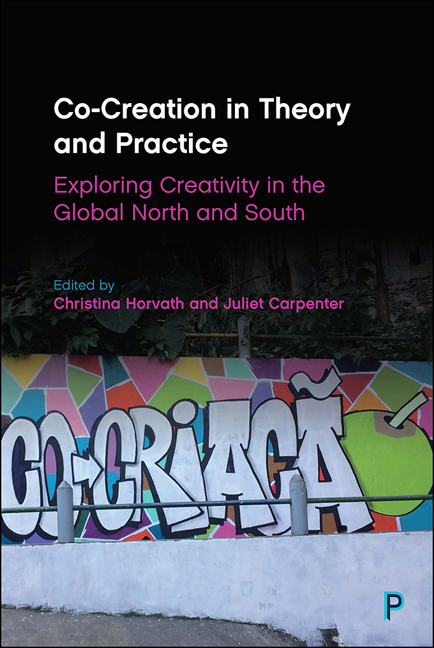12 - Co-Creation and Social Transformation: a Tough Issue for Research
Published online by Cambridge University Press: 18 March 2021
Summary
Introduction
This chapter discusses the role of research institutions and researchers in social transformation in an urban context. From the perspective of City Mine(d), an initiator of social change processes, it looks at the ambitions of academic research methodologies like Co-Creation to generate knowledge together with communities and stakeholders.
The first section outlines the argument. Section two describes the evolution many citizen and community organisations have made from protest to proposal. The third section focuses on a practical approach to social transformation inspired by the work of Vermaak (2012) and Orlikowski (1996). Section four is dedicated to the specific tactics for social change developed by City Mine(d). The last section deals with the, at times, ambiguous role of research institutions and researchers, as observer-scientist versus agent-activist, or as producers of knowledge versus initiators of change, in social transformation. A conclusion revisits the main ideas of this chapter.
The argument
In September 2019, the department of Political Sciences of UNAM (National Autonomous University of Mexico) organised a Co-Creation seminar in Mexico City. During the session titled ‘Citizen participation and socio-political dynamics’, it was argued that grassroots organisations and citizen initiatives are increasingly shifting ‘from protest to proposal’, no longer aiming to block developments, but formulating alternatives, analysing what is at stake and coming up with better ways of meeting needs. The shift from opposing to proposing has brought grassroots organisations closer to more institutional actors like governments, businesses and industry, civil society organisations, and also research institutions. This raises an interesting question: are institutionalised or informal partners better positioned to initiate social transformation?
The rapprochement of these actors has blurred the traditional boundaries between social transformation and social research. Campbell and Vanderhoven (2016) refer to the public benefit of co-producing research, and this volume describes Co-Creation as a methodology for generating creative outputs and knowledge that are relevant to the local community. While this is welcomed by all involved, one should be careful not to confuse social research as a scientific practice with social transformation. Social transformation in this chapter refers to the practice of bringing about change in issues that cannot be solved in a traditional manner.
Information
- Type
- Chapter
- Information
- Co-Creation in Theory and PracticeExploring Creativity in the Global North and South, pp. 189 - 206Publisher: Bristol University PressPrint publication year: 2020
